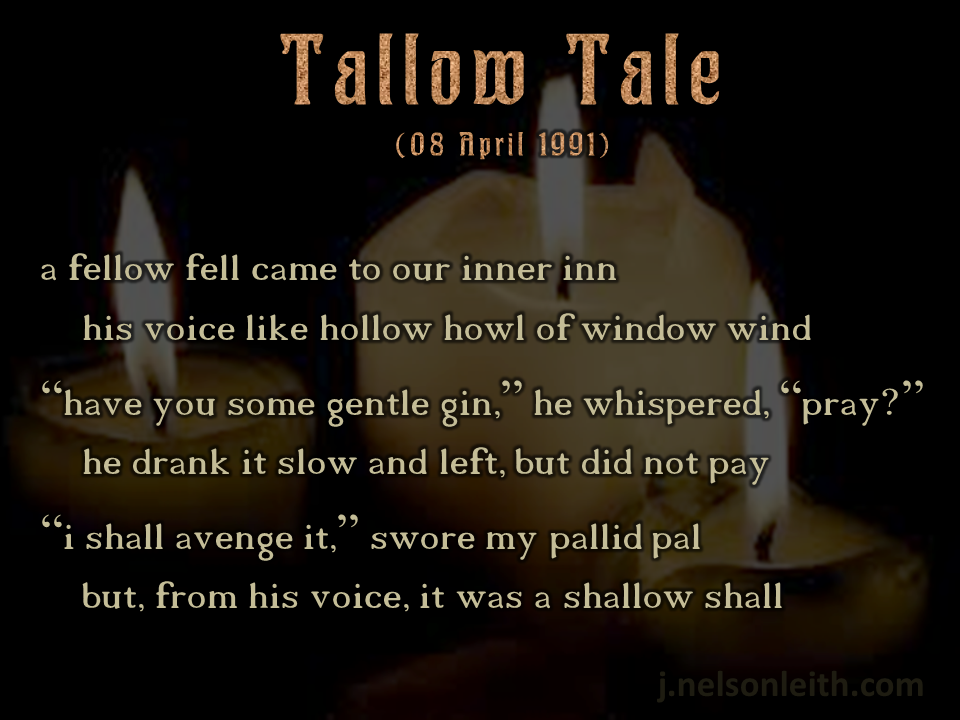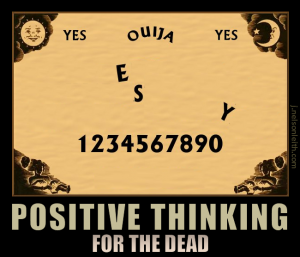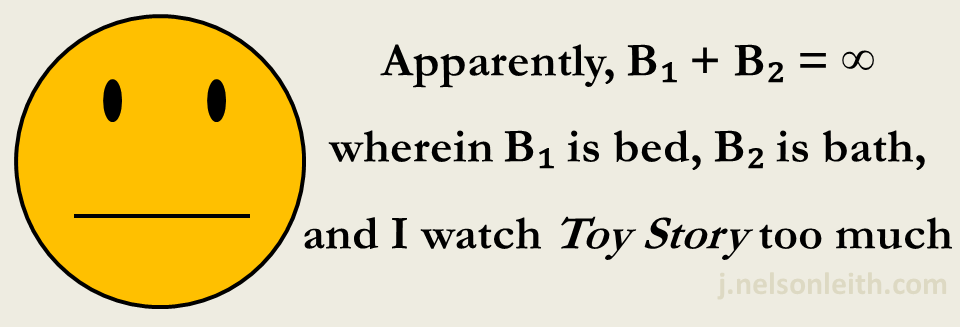
Monthly Archives: July 2015
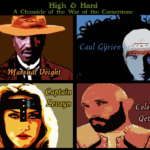
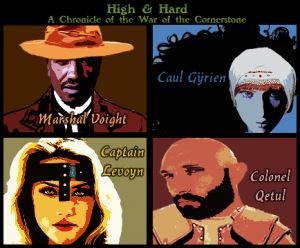 Among the serialized fiction in my Free Fiction Friday cycle is a dark, gunpowder fantasy that combines elements of gritty, realist, “hard” fantasy and epic, classic, “high” fantasy.
Among the serialized fiction in my Free Fiction Friday cycle is a dark, gunpowder fantasy that combines elements of gritty, realist, “hard” fantasy and epic, classic, “high” fantasy.
Based on this fusion, I originally called the story High & Hard, not only to reflect the two genre elements but to capture the Western grittiness of the tale. I kicked up a domain for it and everything, www.highandhard.com, and snuck the phrase into the story:
He saw nothing, heard nothing except the broom-brush of nearby trees moving with the unstill air. His whole world was empty and, but for the sick breath of the wind, quiet… The sun was high and hard. Even through the sheet of cloud, it hurt his eyes.
In the meantime, I received some reader feedback that perhaps High & Hard isn’t the best title for the series. So, since a reader raised the issue I decided to let the readers decide the issue, and started a poll.
Given a range of options, readers overwhelmingly chose the existing title! Some options that I thought were shoe-ins (The Cornerstone, The Long War, The War for the Cornerstone) received no support whatsoever. The results are below: Continue reading

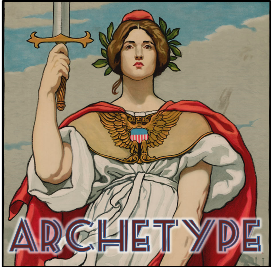 It’s time for another installment of the Writing Archetypes series, where I talk about certain roles, scenes, and plot points that can be found repeated in many stories. They synchronize those stories with the narrative instincts of the human mind, and imbue them with a distinct psychological presence.
It’s time for another installment of the Writing Archetypes series, where I talk about certain roles, scenes, and plot points that can be found repeated in many stories. They synchronize those stories with the narrative instincts of the human mind, and imbue them with a distinct psychological presence.
You don’t have to be a dyed-in-the-wool Jungian to recognize that archetypes are a core element in storytelling. You don’t even have to like the term “archetype.” Call them what you like: tropes, memes, patterns, threads, modes, models, Platonic forms, şurôt, whatever.
But, no matter what you call them or why they exist, they do exist, and they have undeniable storytelling power.
During the last few installments we learned a little about Heroes, Companions, Gurus, etc. Today we explore the Villain archetype, which is often divided into Proximate and Ultimate threats. The archetypal “bad guy” seems like a simple role—just oppose the Hero, right?—but there’s a lot of subtlety and complexity lying just under the surface.

 Among the serialized fiction in my Free Fiction Friday cycle is a dark, gunpowder fantasy that combines elements of gritty, realist, “hard” fantasy and epic, classic, “high” fantasy.
Among the serialized fiction in my Free Fiction Friday cycle is a dark, gunpowder fantasy that combines elements of gritty, realist, “hard” fantasy and epic, classic, “high” fantasy.
Based on this fusion, I originally called the story High & Hard, not only to reflect the two genre elements but to capture the Western grittiness of the tale. I kicked up a domain for it and everything, www.highandhard.com, and snuck the phrase into the story:
He saw nothing, heard nothing except the broom-brush of nearby trees moving with the unstill air. His whole world was empty and, but for the sick breath of the wind, quiet… The sun was high and hard. Even through the sheet of cloud, it hurt his eyes.
In the meantime, I’ve received some reader feedback that perhaps High & Hard isn’t the best title for the series. So, since a reader raised the issue I thought it best to let the readers decide the issue. Below is the poll:
[POLL CLOSED : RESULTS]
 I love big cats, and I cannot lie. Nature has yet to devise a more gorgeous predator than the Panthera genus. Of course, it’s a one-way love affair.
I love big cats, and I cannot lie. Nature has yet to devise a more gorgeous predator than the Panthera genus. Of course, it’s a one-way love affair.
Once upon a time I was watching a documentary about captive lions. The human (I forget if he was a researcher, zoo keeper, or simply tending a facility) was demonstrating how he earned the trust of a lioness by easing a standard push broom toward her. The moment she reacted negatively, he stopped and withdrew.
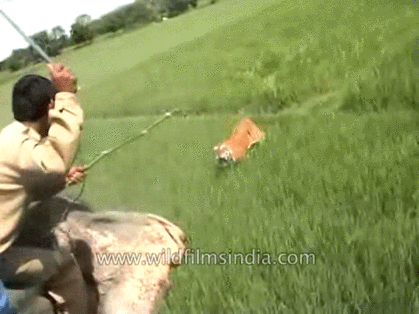 This taught her that she had control over his behavior, which boosted her confidence and calmed her down. So, each time he was able to move the broom closer to her until, finally, he was actually able to touch her.
This taught her that she had control over his behavior, which boosted her confidence and calmed her down. So, each time he was able to move the broom closer to her until, finally, he was actually able to touch her.
This a great technique for creating rapport with other thinking creatures, showing them that the threat they feel from you isn’t really so bad. But it comes with pitfalls. Fortunately for this lioness, her trust was being earned for her own benefit. But, imagine if the human’s intention was not to take care of the lioness, but to poison her. Each push of the broom, each gradual boost in her trust would be another step toward her undoing.
And, this dynamic doesn’t require intention on the part of the threat. Imagine some hypothetical Neolithic wanderer finding a new type of fruit, a little spicy to the taste, and after swallowing a bite of it he worries it might make him sick. But, a few hours later, he’s fine. So, confidence boosted, he eats and survives a whole fruit, and eventually adds the fruit to his daily diet.
Only, the spicy chemical accumulates in his brain, softening the walls of his arteries until a month later he suffers a massive stroke.
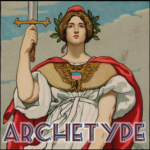
 As the full story of Nobel laureate Tim Hunt’s allegedly sexist remarks begins to see the light of day, it becomes more and more clear that his “chauvinist monster” bit was actually a self-deprecating satire aimed not at women but at men. After the joke, he went on:
As the full story of Nobel laureate Tim Hunt’s allegedly sexist remarks begins to see the light of day, it becomes more and more clear that his “chauvinist monster” bit was actually a self-deprecating satire aimed not at women but at men. After the joke, he went on:
Now seriously, I’m impressed by the economic development of Korea. And women scientists played, without doubt an important role in it. Science needs women and you should do science despite all the obstacles, and despite monsters like me.
Far from trying to belittle women and drive them from science, he was deploying a negative caricature of male misbehavior in order to encourage women to stay in science. So, at first blush, this looks like a terrible mistake on the part of the feminist feeding frenzy that incinerated Hunt’s career before he could even return to England, because they destroyed an ally.
But, if you understand that archetypes—like the Damsel-in-Distress trope that drove the viral fury against Hunt—are about social relationships, not individual natures, the rabid desire to destroy a threatening male without concern for the underlying facts makes much more sense.

